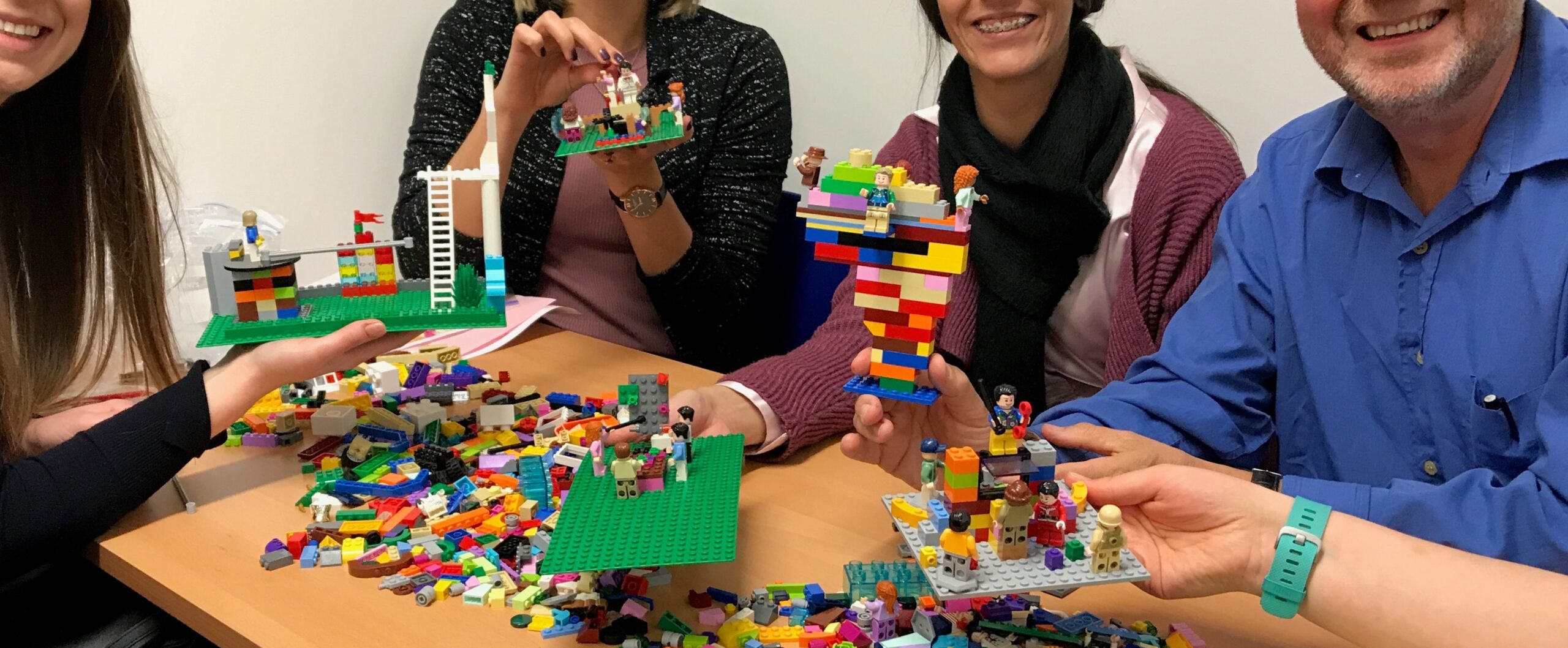
In today’s dynamic business landscape, fostering creativity, innovation, and effective communication within teams is crucial for achieving sustainable success. Enter the Lego Serious Play methodology, a powerful approach to problem-solving and ideation that utilises the iconic Lego bricks as a medium for expression. At the heart of this innovative process lies the pivotal figure of the Lego Serious Play facilitator, whose expertise and guidance steer participants towards deeper insights and collaborative solutions. This comprehensive guide explores the multifaceted role of a Lego Serious Play facilitator, delves into advanced techniques and best practices, and underscores the significance of LEGO Facilitator training in maximising the impact of this transformative methodology.
Understanding Lego Serious Play:
Lego Serious Play (LSP) is far more than child’s play; it’s a structured methodology designed to foster creativity, facilitate communication, and unlock innovative solutions to complex challenges. Originating from the concept of “serious play” developed by Johan Roos and Bart Victor, LSP has gained traction across various industries as a versatile tool for strategy development, team building, and organisational transformation.
The Role of a Lego Serious Play Facilitator:
A Lego Serious Play facilitator serves as the architect of LSP sessions, guiding participants through a series of structured activities designed to stimulate imagination, unlock insights, and drive collaborative problem-solving. Here’s an in-depth look at the key responsibilities of a facilitator:
- Creating a Safe Environment: Establishing an atmosphere of trust and psychological safety is paramount for fostering creativity and open communication. Facilitators create a safe space where participants feel empowered to share their thoughts, ideas, and experiences without fear of judgment.
- Designing Engaging Workshops: Drawing upon their expertise in both the Lego Serious Play methodology and facilitation techniques, facilitators design workshops tailored to the specific objectives and challenges faced by participants. This may involve crafting customised activities, challenges, and exercises to address unique organisational needs.
- Facilitating Dynamic Discussions: Facilitators lead dynamic discussions that delve beneath the surface, encouraging participants to explore complex issues from multiple perspectives. Through skilful questioning and active listening, facilitators guide conversations towards deeper insights and shared understanding.
- Interpreting Symbolic Constructs: In LSP, participants use Lego bricks to construct metaphorical models that represent their thoughts, experiences, and aspirations. Facilitators possess the ability to interpret these symbolic constructs, extracting meaning and insights that may not be immediately apparent to participants.
- Nurturing Collaboration: Collaboration is at the core of LSP, and facilitators play a pivotal role in fostering a spirit of teamwork and synergy among participants. Through structured activities and group exercises, facilitators encourage collaboration, creativity, and collective problem-solving.
- Driving Action and Reflection: Successful LSP sessions extend beyond the building of models to action planning and reflection. Facilitators guide participants in translating insights gained during the session into actionable steps and facilitate ongoing reflection to drive continuous improvement and learning.
The Importance of LEGO Facilitator Training:
While anyone can play with Lego bricks, facilitating a Lego Serious Play session requires a unique set of skills, knowledge, and competencies. LEGO Facilitator training equips individuals with the tools and techniques needed to excel in this role. Here’s why LEGO Facilitator training is essential:
- Understanding the theoretical underpinnings of the Lego Serious Play methodology.
- Mastering facilitation techniques for creating engaging and productive sessions.
- Developing the ability to interpret and analyse symbolic constructs.
- Cultivating a facilitator mindset focused on empathy, adaptability, and inclusivity.
- Navigating group dynamics and managing challenging situations effectively.
By investing in LEGO Facilitator training, organisations ensure that their facilitators possess the expertise needed to maximise the impact of LSP sessions and drive meaningful outcomes.
Exploring Advanced Techniques and Best Practices:
Experienced Lego Serious Play facilitators employ advanced techniques and best practices to enhance the effectiveness of their sessions. Here are some strategies used by seasoned facilitators:
- Customised Workshop Design: Tailoring workshop designs to suit the unique needs and objectives of each group.
- Utilising Digital Tools: Integrating digital tools and platforms to enhance collaboration and engagement.
- Incorporating Storytelling Techniques: Using storytelling to add depth and richness to discussions.
- Facilitating Hybrid Workshops: Leading workshops with participants located both in-person and remotely.
- Integrating Reflective Practices: Providing opportunities for participants to reflect on their insights and set personal development goals.
- Adapting to Cultural Differences: Being sensitive to cultural nuances and differences in communication styles.
Measuring Impact and Evaluating Success:
Measuring the impact of Lego Serious Play workshops is crucial for demonstrating return on investment and informing future initiatives. Experienced facilitators employ a variety of methods to assess the effectiveness of their sessions, including pre- and post-workshop surveys, observational assessments, and follow-up interviews.
Navigating Challenges and Overcoming Obstacles:
While Lego Serious Play facilitation offers numerous benefits, it also presents its own set of challenges that facilitators must navigate adeptly. From managing group dynamics to addressing resistance to change, experienced facilitators employ various strategies to overcome obstacles and ensure the success of their sessions.
Evolving Trends and Future Directions:
As the field of Lego Serious Play continues to evolve, facilitators must stay abreast of emerging trends and innovative practices to remain effective in their roles. Some notable trends shaping the future of LSP facilitation include the integration of artificial intelligence, expansion into new industries, emphasis on sustainability and ethical practices, and embracing diversity, equity, and inclusion.
Conclusion:
The role of a Lego Serious Play facilitator is dynamic and multifaceted, requiring a blend of creativity, facilitation skills, and strategic thinking. By embracing advanced techniques, best practices, and ongoing professional development, facilitators can elevate their practice and maximise the impact of their LSP sessions. As facilitators embrace the evolving landscape of LSP, they play a vital role in driving innovation, fostering collaboration, and shaping the future of work in a rapidly changing world. Through their dedication and expertise, they harness the transformative power of play to unlock the full potential of individuals and teams, paving the way for a brighter and more creative future.







